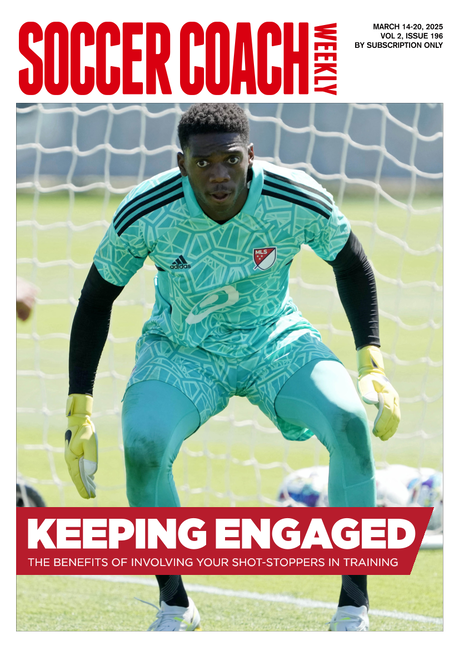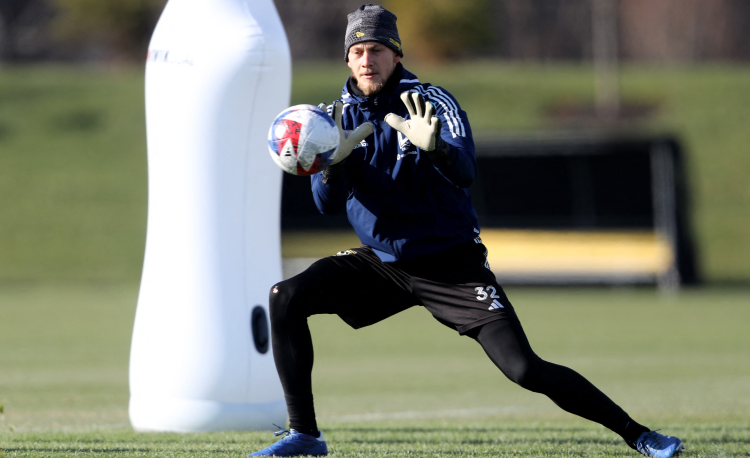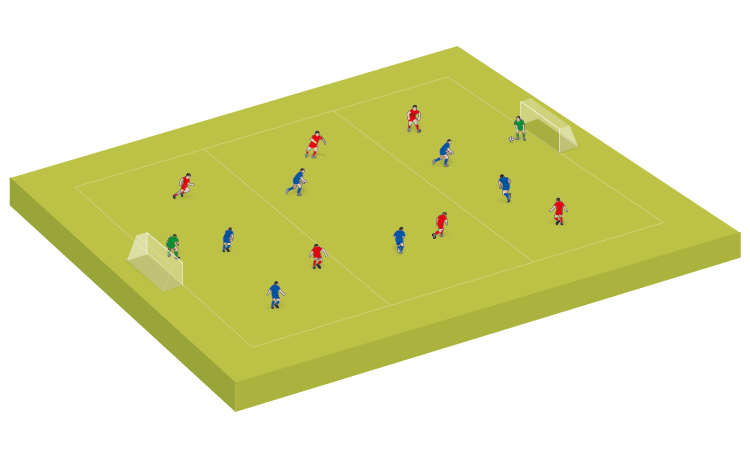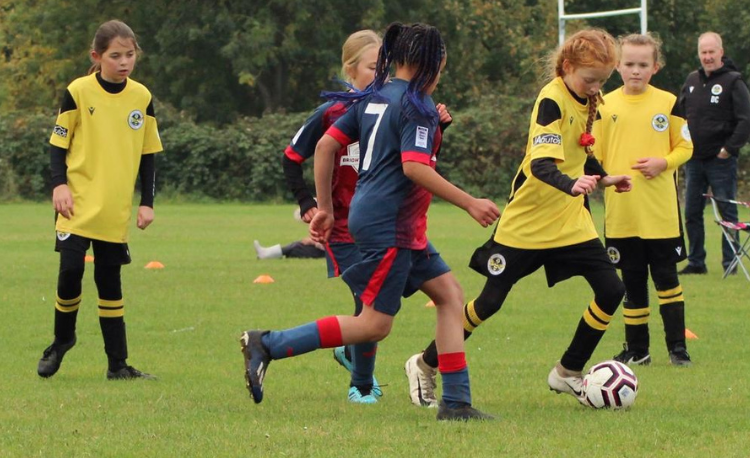Why wingers need to think like full-backs
Coaching Adviceby Soccer Coach Weekly
Assists and goals aren't enough - wide players need to help out defensively too
Formations are constantly evolving and the role of the winger, in particular, can differ depending on which shape your team lines up in.
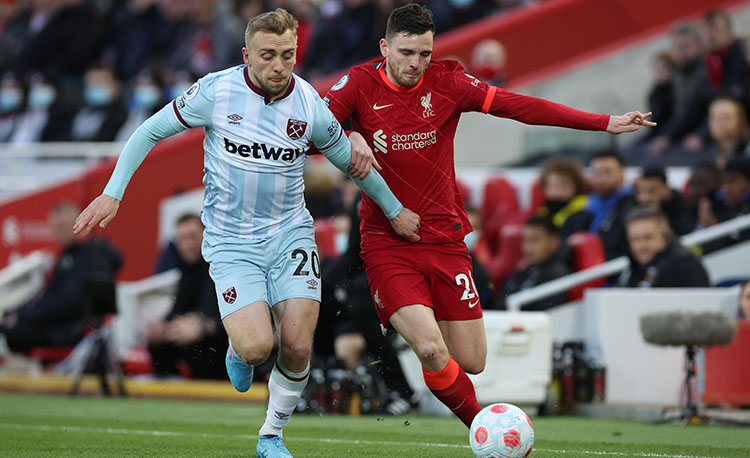
West Ham United's Jarrod Bowen (left), playing as a right winger, tracking back to tussle with Liverpool's attack-minded left-back Andrew Robertson
The winger is the supply line for much of your team’s attacking play, Traditionally, their aim is to attack down the flanks, using their pace to get to the byline and provide the ammunition for those arriving in the box, whipping in a dangerous cross or cutting inside before playing the ball into the feet of an attacker.
But, when they play out wide - as opposed to be given a free or inverted role to drift in - being a winger demands much more than an offensive outlook.
In today’s game, full-backs get forward much more than they used to. In fact, in the more attack-minded sides, they become, to all intents and purposes, an extra winger, overlapping the team-mate in front of them and offering another headache for the opposition.
However, when you have an attack-minded full-back in the side, it does leave you open to a certain amount of danger at the back.
If a move breaks down and the opposition gain control, the full-back can be left completely out of position and the centre backs can be woefully exposed.
This is where a good winger will use their positional nous and cover the attacking full-back.
One such example of this is Jarrod Bowen, the West Ham United winger who has been making a name for himself this season in the Premier League and the Uefa Europa League.
Primarily an attacker, Bowen's 52 goals and 12 assists in 117 games in England's second tier, with Hull City, earned him a move to the top flight with West Ham in January 2020.
Since then, he has scored a further 21 times and created 20 goals during 89 league and European matches for the Hammers, playing predominantly as a right winger.
But Bowen isn't just a threat going forward - he has this season become fitter and a more diligent worker who will track back, too.
His impressive defensive contributions include an above-average defensive duel win percentage and number of interceptions, compared to other Premier League attackers - and his successful tackles per game are up there with Arsenal's Bukayo Saka, someone who can also play at full-back.
"A good winger will use their positional nous and cover the attacking full-back..."
Your wingers should be in tune with your full-backs. As well as communicating with their defensive colleagues, they must be capable of assessing the opposition around them and, if necessary, dropping into space vacated by a team-mate.
In short, they become an emergency fullback, meaning that the team manages to maintain its shape – and if you lose the ball, it is not too much of an issue.
Once a partnership has developed between a winger and a full-back, the two can often interchange and work in tandem perfectly.
If the winger is too far forward, a full-back will hold their run - but if they sense the opportunity to join the attack, the winger will become aware of their defensive responsibilities.
If your players want to be successful wingers, it can't just be about possessing the skills and pace to play an offensive game - they also have to be aware of their defensive responsibilities too, and have great stamina to combine the two duties.
Newsletter Sign Up
Coaches Testimonials

Gerald Kearney, Downtown Las Vegas Soccer Club

Paul Butler, Florida, USA

Rick Shields, Springboro, USA

Tony Green, Pierrefonds Titans, Quebec, Canada
Subscribe Today
Discover the simple way to become a more effective, more successful soccer coach
In a recent survey 89% of subscribers said Soccer Coach Weekly makes them more confident, 91% said Soccer Coach Weekly makes them a more effective coach and 93% said Soccer Coach Weekly makes them more inspired.
*includes 3 coaching manuals
Get Weekly Inspiration
All the latest techniques and approaches
Soccer Coach Weekly offers proven and easy to use soccer drills, coaching sessions, practice plans, small-sided games, warm-ups, training tips and advice.
We've been at the cutting edge of soccer coaching since we launched in 2007, creating resources for the grassroots youth coach, following best practice from around the world and insights from the professional game.
